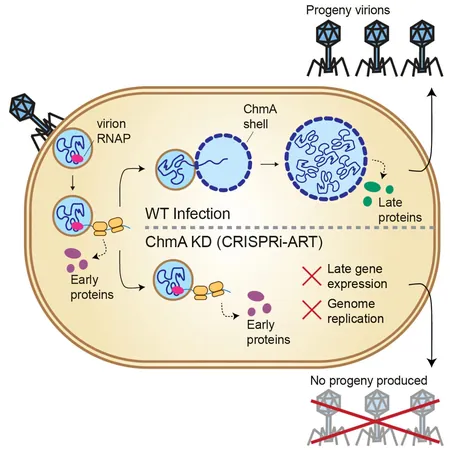
Quercetin Supplements: The Game-Changer for Muscle Strength in Older Adults?
2025-04-01
Author: Jia
Addressing Muscle Decline with Age
As we age, a natural decline in muscle strength occurs, particularly impacting fast-twitch muscle fibers responsible for quick, explosive movements. These fibers, which demand strong brain signals for activation, often become less responsive in older adults, hindering effective muscle engagement during physical activity. This phenomenon contributes to issues like falls, diminished mobility, and can ultimately compromise independence.
While resistance training is a proven method to combat muscle loss, high-intensity workouts can pose safety risks for seniors. Many struggle to perform these workouts due to concerns related to joint pain, cardiovascular health, or mobility issues.
Promising Findings from a New Study
In a double-blind, placebo-controlled trial involving 26 participants aged 65 to 82, researchers observed impressive results while the seniors followed a six-week leg training regimen. Participants engaged in leg resistance exercises three times a week, focusing on isometric knee extensions at a moderate intensity of 60% of their maximum voluntary force (MVF).
Half of the participants received a daily dose of 200mg of quercetin glycosides, a powerful plant-based antioxidant, while the other half received a placebo. The results were remarkable: those taking quercetin experienced a 15% increase in muscle strength, in stark contrast to the placebo group's mere 5% gain.
Equipped with high-density electromyography (HDsEMG), researchers tracked individual motor unit responses, noting that quercetin appeared to enhance the nervous system’s ability to recruit motor units more effectively, especially those that were traditionally harder to activate in older adults.
How Quercetin Makes a Difference
Quercetin is naturally found in foods such as apples, onions, and berries, but achieving the 200mg daily dosage from diet alone is virtually impossible. The study employed a highly bioavailable version of quercetin, which is more readily absorbed by the body.
By blocking adenosine receptors in the brain that dampen nerve activity, quercetin allows for increased release of neurotransmitters like dopamine and acetylcholine, crucial for muscle activation. This boost is particularly beneficial for older adults, whose natural motor unit activation is often diminished.
A Safe Alternative to Conventional Training
One standout aspect of this research is that despite the significant improvements in muscle strength, there were no noticeable increases in muscle size for either group. This points to enhanced neuromuscular efficiency rather than muscle hypertrophy, meaning the brain and nervous system improved their ability to activate existing muscles rather than building new ones.
Notably, the strength gains achieved through quercetin supplementation are comparable to those from high-intensity training, but without its inherent risks. This makes the quercetin-enhanced training approach particularly appealing for practitioners working with frail or mobility-challenged older adults.
Looking Towards Future Research
Despite the exciting findings, the study does have limitations, including a small sample size and short intervention period. Future research could explore higher doses, extended training durations, and incorporate functional exercises essential for daily life.
Moreover, the differing responses of men and women to quercetin due to variations in muscle biology and nerve function warrant further investigation.
In conclusion, this groundbreaking study suggests that supplementing with quercetin could enhance the muscle strength benefits of resistance training in older adults, potentially changing the game in senior fitness. As the research continues, it may pave the way for more effective and safer training paradigms for the aging population.
Stay tuned for more developments in this exciting area of study!



 Brasil (PT)
Brasil (PT)
 Canada (EN)
Canada (EN)
 Chile (ES)
Chile (ES)
 Česko (CS)
Česko (CS)
 대한민국 (KO)
대한민국 (KO)
 España (ES)
España (ES)
 France (FR)
France (FR)
 Hong Kong (EN)
Hong Kong (EN)
 Italia (IT)
Italia (IT)
 日本 (JA)
日本 (JA)
 Magyarország (HU)
Magyarország (HU)
 Norge (NO)
Norge (NO)
 Polska (PL)
Polska (PL)
 Schweiz (DE)
Schweiz (DE)
 Singapore (EN)
Singapore (EN)
 Sverige (SV)
Sverige (SV)
 Suomi (FI)
Suomi (FI)
 Türkiye (TR)
Türkiye (TR)
 الإمارات العربية المتحدة (AR)
الإمارات العربية المتحدة (AR)